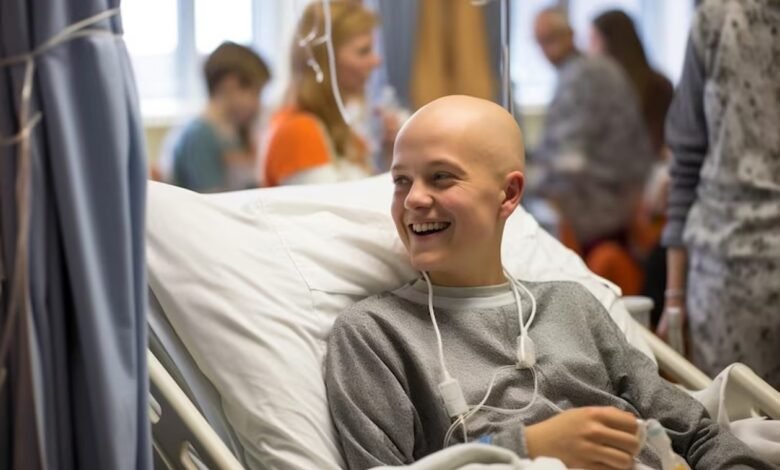Death Anxiety in Cancer Patients: How to Help Yourself and Your Loved Ones

Facing a cancer diagnosis is one of the most challenging experiences one can go through. It not only affects the patients but also their loved ones. Among the many emotions that cancer patients and their families encounter, death anxiety is a common and often overwhelming concern. In this article, we will delve into the world of death anxiety in cancer patients, understanding its impact, and exploring strategies to cope with it. We will also discuss how family and friends can provide support and offer guidance for caregivers.
Death Anxiety in Cancer Patients
Death anxiety, often referred to as thanatophobia, is the fear of death or the process of dying. It’s a natural human emotion, but it can become intensified when someone is diagnosed with a life-threatening illness like cancer. The uncertainty surrounding the disease, the fear of suffering, and the fear of leaving loved ones behind can all contribute to heightened death anxiety.
The Impact of Cancer on Death Anxiety
Cancer, a formidable adversary that affects millions of lives worldwide, brings with it a myriad of physical, emotional, and psychological challenges. One of the most profound of these challenges is the heightened sense of death anxiety experienced by cancer patients.
Uncertainty Amplified: A cancer diagnosis often shatters the illusion of immortality that many of us hold. The awareness of one’s own mortality becomes a stark reality. The unpredictability of the disease, the potential for a life-limiting prognosis, and the fear of suffering can significantly intensify death anxiety. This fear is not only about the end of life but also the journey towards it, which can be daunting.
Fear of Unfinished Business: Cancer patients often grapple with the fear of leaving their loved ones behind with unfinished business. They worry about the burden it might place on their families, the emotional distress their absence could cause, and the feeling of helplessness in not being able to fulfill their responsibilities.
Physical and Emotional Toll: The emotional toll of cancer, combined with the physical and psychological aspects of the disease, can be overwhelming. The pain, discomfort, and suffering associated with cancer can lead to heightened anxiety about the dying process. The fear of a painful death can haunt the thoughts of cancer patients, making the journey even more challenging.
Impact on Daily Life: Cancer and its treatments often disrupt a person’s daily life and routines. This disruption can further exacerbate death anxiety, as patients may feel they have lost control over their lives. The uncertainty of what each day may bring can be a constant source of stress.
Relationships and Support: The impact of cancer on relationships with family and friends is complex. While many experience an outpouring of support and love, others may feel a sense of isolation or discomfort as people grapple with how to respond. These shifts in relationships can add to the emotional burden carried by cancer patients.
Read More: Smoking and Oral Cancer: What You Need to Know
Coping Strategies for Cancer Patients
Support from Loved Ones
- Open Communication: Encouraging honest and open conversations with loved ones can help alleviate anxiety. Discussing fears and concerns can provide emotional relief.
- Offering Emotional Support: Being there for the patient emotionally can make a significant difference. Simple gestures of love and support can help ease their anxiety.
- Accompanying to Medical Appointments: Going to medical appointments with the patient can provide comfort and ensure all questions are addressed.
Professional Counseling
Professional counseling, whether through psychologists or support groups, can offer a safe space to express fears and anxieties. Therapy can equip patients with coping mechanisms and a better understanding of their feelings.
Mindfulness and Meditation
Practicing mindfulness and meditation can help patients stay grounded in the present moment, reducing anxiety about an uncertain future. These techniques promote relaxation and emotional well-being.
Palliative Care
Palliative care focuses on improving the quality of life for individuals with serious illnesses. It addresses physical, emotional, and psychological needs, including managing death anxiety.
Supporting Your Loved Ones
Cancer doesn’t just affect the patient; it impacts their family and friends too. Here are some ways to offer support:
- Open Communication: Make it clear that you are there to listen and discuss their concerns.
- Offering Emotional Support: Express your love and empathy and encourage them to share their feelings.
- Accompanying to Medical Appointments: Providing company during medical visits can offer comfort.
Self-Care for Caregivers
While the primary focus is often on the well-being of cancer patients, it’s essential not to overlook the caregivers who provide invaluable support. Caregivers, typically family members or close friends, play a crucial role in the patient’s journey. However, this role can be emotionally and physically demanding. To provide the best care, caregivers need to take care of themselves as well.
Recognize Your Limits: As a caregiver, it’s vital to acknowledge your own limitations. Providing care can be emotionally draining, and it’s okay to ask for help or take breaks when needed. Overexerting yourself can lead to burnout and negatively impact your ability to provide support.
Seek Support: Don’t hesitate to reach out to support networks, both online and offline. Connecting with other caregivers can provide a sense of community and a platform to share experiences and advice. Additionally, consider joining caregiver support groups or seeking professional counseling if required.
Physical Well-Being: Taking care of your physical health is equally important. Ensure you maintain a balanced diet, get regular exercise, and get enough sleep. Neglecting your own health can compromise your ability to provide care effectively.
Mental and Emotional Health: Caring for a loved one with cancer can be emotionally challenging. Don’t shy away from seeking professional counseling or therapy to help manage your emotions and stress. Mindfulness and relaxation techniques can also be beneficial.
Set Boundaries: Establish clear boundaries to prevent caregiver burnout. It’s okay to say “no” or delegate tasks when you need a break. Setting limits on your time and energy is essential for your own well-being.
Respite Care: Consider using respite care services, which provide temporary relief to caregivers. This allows you to take a break and recharge while ensuring that your loved one receives the care they need.
Lean on Your Support System: Friends and family can provide emotional support to caregivers. Don’t hesitate to lean on your support system and share your feelings and concerns with them. They can offer a listening ear, a helping hand, or even just a comforting presence.
Read More: Exploring the Benefits of Cancer Treatment
Conclusion
Death anxiety is a profound emotional challenge that cancer patients face on their journey. The impact of cancer, with its uncertainties and the potential for life-limiting outcomes, can intensify this anxiety, making the already difficult path even more challenging.
However, it’s crucial to remember that there is hope and support available. Open communication with loved ones, professional counseling, mindfulness, and palliative care are valuable tools for patients to cope with their anxiety and improve their quality of life. These strategies not only help patients manage their fears but also offer a sense of control and comfort.
Support from family and friends is equally important. By being there emotionally, offering understanding and empathy, and accompanying patients to medical appointments, loved ones can play a vital role in easing the emotional burden.
Cancer is a formidable adversary, but it’s important to recognize that it’s a battle that can be fought with courage, resilience, and the support of a caring community. The journey may be difficult, but with the right strategies, communication, and a loving support network, it’s a journey that can be navigated with strength and grace.
FAQs
FAQ 1: What is death anxiety?
Death anxiety is the fear of death or the process of dying, which can intensify when someone is diagnosed with a life-threatening illness.
FAQ 2: How does cancer affect death anxiety?
Cancer, due to its unpredictability and potential life-limiting prognosis, significantly amplifies death anxiety in patients.
FAQ 3: What can cancer patients do to cope with death anxiety?
Cancer patients can cope with death anxiety through open communication, emotional support, professional counseling, mindfulness, and palliative care.
FAQ 4: How can family and friends support cancer patients dealing with death anxiety? Family and friends can provide support by engaging in open communication, offering emotional support, and accompanying patients to medical appointments.
FAQ 5: What is the role of palliative care in managing death anxiety in cancer patients? Palliative care focuses on improving the quality of life for individuals with serious illnesses, including addressing and managing death anxiety.







